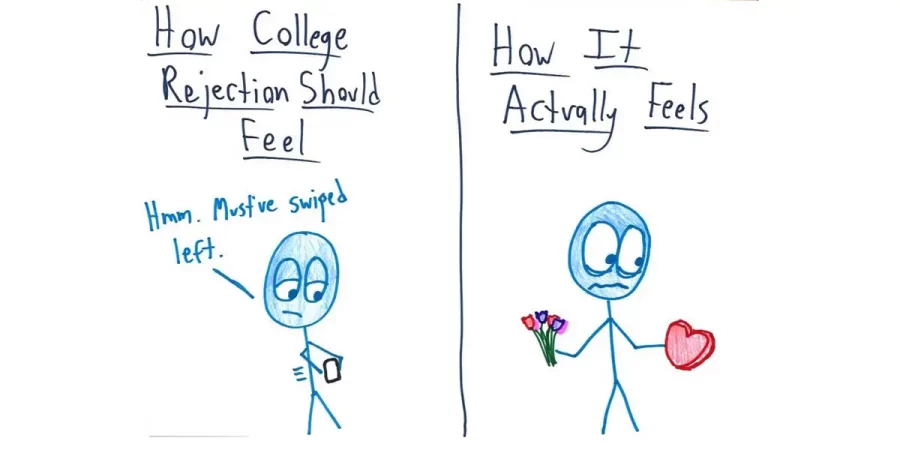College Advice For Lowerclassmen
March 22, 2023
As the month of March ends, many seniors are finally receiving their college decisions. Personally, my college experience was a wild ride. I did not have any close friends or older siblings to get tips from during the application process, so I was essentially going in blind. As such, I feel obligated to share my experiences for any students out there who might be in the same situation as I was. There’s a lot of stuff they don’t tell you about college applications, so hopefully, these tips can help you prepare for your own application season.
The application process starts with building your college list. A crucial idea to understand is that the traditional “safety, target, reach” rules are less applicable today than they once were, especially for more competitive colleges. Know that colleges use stats as more of a baseline consideration than a ticket to instant acceptance. If you are applying to a college, assume that most of the students applying to that college have roughly the same stats as you. If you have a 3.4 GPA and are in line with a school’s mean GPA, remember that some other kid with a 3.8 GPA might be applying to that same school as one of their safeties. I was pretty caught off guard when I was rejected from colleges that I theoretically should have been in the 75th percentile for stats-wise. Stats are what bring your application up for consideration, but it’s everything else-your activities, interview, essays, letters of recommendation- that will make your application stand out against ten other applicants with the exact same stats.
Because of how competitive college admissions are and how difficult it is to gauge one’s chances of being accepted into a school, many students have adopted the strategy of applying to a ton of colleges to increase their chances. This is a viable strategy, but it has led to a dangerous feedback loop. People apply to tons of colleges, which makes those colleges more difficult to get into, which forces students to apply to even more colleges. With how convoluted the system has become, I urge you to expect rejections. It is very important to have a few safeties, and even safeties of the safeties, because you never know what might happen. I got rejected at my first seven or so colleges, and it sucked. I even got waitlisted at the honors college of my safety school, which I thought I would have been able to get into. These rejections can be a huge blow to your self-esteem. However, when the rejections come, take comfort in the fact that despite rejection, the fact that you had the stats and commitment to be a solid candidate at that school says a lot about your hard work and character. Additionally, while some students may get into their first-choice school ED, many of your friends will be in the same boat as you, getting rejected and waiting for decisions from other colleges. Try not to worry too much, and know that if you are dedicated you will be able to thrive regardless of where you end up going to college.
My other advice regarding college admissions is to START EARLY. Senioritis is real. People will tell you that it doesn’t start until the second semester of senior year. That is a lie. Senioritis starts the second week of school, and it only gets worse as the year goes on. College applications are not something you want to procrastinate on. During senior year you will likely be taking more advanced classes and juggling more extracurricular activities. If you add college applications on top of this, your life becomes one big stressful mess. Try and do as much as you can in the spring and summer leading up to your senior year. I had friends that spent their entire winter breaks writing college essays. Unless you want to end up in the same boat, I’d strongly suggest getting a jump-start on the process so you can be as prepared as possible.
If you take nothing away from the rest of the article, this last piece of advice is the most important to remember. You do not have to do this alone. People in your life will be more than willing to help you along your journey. For example, your guidance counselor is your best friend. It’s the counseling team’s job to deal with college-related tasks, so trust the experts. There were lots of little questions I had during my application process, and my counselor was always there to answer them. Seriously, these people know their stuff. Another huge player is your English teacher. These teachers have been reading college essays for years. They know what key details colleges are looking for, and can help you present yourself in a way that makes you stand out. Friends, non-English teachers, and your advisor are also happy to look over essays for you, so you can get plenty of input from different sources. High School Musical fans will know the wisdom in recognizing that “We’re all in this together”.
To all the juniors out there, I hope this information was helpful, and wish you the best of luck with your applications!


